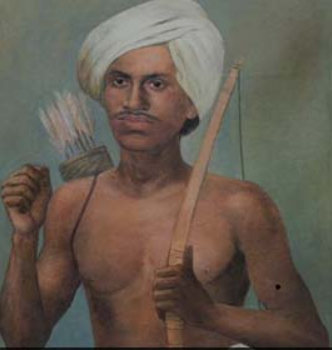Birth Anniversary of Birsa Munda | 16 Nov 2020
Why in News
The Prime Minister paid tributes to tribal leader Birsa Munda on his birth anniversary on 15th November.
- The State of Jharkhand, carved out of Bihar, officially came into being on Munda’s birth anniversary in 2000.
Key Points
- Birth: 15th November 1875, belonged to the Munda tribe in the Chotanagpur Plateau area.
- Brief Profile:
- Also known as Dharti Aaba (Father of Earth), Birsa Munda is known to have mobilised the tribal community against the British and had also forced the colonial officials to introduce laws protecting the land rights of the tribals.
- Birsait Sect:
- Having gained awareness of the British colonial ruler and the efforts of the missionaries to convert tribals to Christianity, Birsa started the faith of ‘Birsait’.
- Members of the Munda and Oraon community joined the Birsait sect and it turned into a challenge to British conversion activities.
- Further, he urged the Mundas to give up drinking liquor, clean their village, and stop believing in witchcraft and sorcery.
- Munda Rebellion:
- It is one of the most important tribal movements.
- It was led by Birsa Munda in the south of Ranchi in 1899-1900.
- The movement identified following forces as the cause of the misery the Mundas were suffering:
- The land policies of the British were destroying their traditional land system.
- Hindu landlords and moneylenders were taking over their land.
- Missionaries were criticising their traditional culture.
- The 'Ulgulan' or the 'Great Tumult' as the movement came to be called, aimed at establishing Munda Raj by driving out the British.
- Munda used traditional symbols and language to rouse people, urging them to destroy “Ravana” (dikus/outsiders and the Europeans) and establish a kingdom under his leadership.
- Birsa’s followers began targeting the symbols of diku and European power. They attacked police stations and churches, and raided the property of moneylenders and zamindars. They raised the white flag as a symbol of Birsa Raj.
- On 3rd March, 1900, Birsa Munda was arrested by the British police while he was sleeping with his tribal guerilla army at Jamkopai forest in Chakradharpur (Jharkhand).
- Birsa died of cholera in the jail and the movement faded out.
- Significance of Munda Rebellion:
- It forced the colonial government to introduce laws so that the land of the tribals could not be easily taken over by dikus (Chotanagpur Tenancy Act, 1908).
- It showed that the tribal people had the capacity to protest against injustice and express their anger against colonial rule.
Jharkhand Foundation Day
- The name "Jharkhand" means "The Land of Forests". The state was brought into existence by the Bihar reorganization Act on 15th November, 2000 - the birth anniversary of the legendary Bhagwan Birsa Munda.
- Jharkhand shares its border with the states of Bihar to the north, Uttar Pradesh and Chhattisgarh to the west, Odisha to the south, and West Bengal to the east.
- Most of the state lies on the Chotanagpur Plateau, which is the source of the Koel, Damodar, Brahmani, Kharkai, and Subarnarekha rivers, whose upper watersheds lie within Jharkhand.
- Forest preserves support populations of tigers and Asian Elephants (Betla National Park).
- Jharkhand boasts of 40% and 29% of India's mineral and coal reserves, respectively.
- Jharkhand has 32 tribal groups including Munda, Kol, Santhal, Oraon, Khond, Asur, Gond etc.
